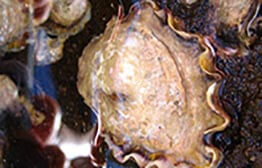South Australia free of oyster disease
Precautionary testing of South Australian oyster stocks have confirmed that the state is free of the oyster disease Pacific oyster mortality syndrome (POMS).

Chief Veterinary Officer for Primary Industries and Regions SA (PIRSA), Roger Paskin said the outcome, confirmed through test results on Pacific oyster spat received from Tasmania is great news for South Australia’s $35m oyster industry.
“I am sure that the quick actions that we have undertaken in liaison with local industry over recent days, including the testing regime, have ensured this great outcome for the oyster sector,” he said.
Other precautionary measures implemented in South Australia following the detection of POMS in Tasmania last week, included bans on the importation of live Tasmanian Pacific oysters into South Australia and the movement of Pacific oysters associated with oyster farming within the state.
Dr Paskin said as a result, the mandatory ban on the movement of Pacific oysters associated with oyster farming within South Australia has now been lifted.
“The movement of oysters for production purposes within the state can now resume,” he said.
“However the external threat remains and PIRSA’s staff along with the local oyster industry are therefore remaining vigilant.”
Due to continuing concern on events in Tasmania, a new Livestock Order Notice is now in place continuing the ban on the entry of live Pacific oysters sourced from Tasmania into South Australia, including for human consumption.
The new order remains in place until end July or until it is revoked.
“It will remain illegal to bring in live Pacific oysters into South Australia that have been sourced from Tasmania,” Dr Paskin said. “However oysters that are either frozen or opened, will be allowed to be brought into South Australia.
“This ban applies to consumers travelling into SA and seafood processors alike, and a part of these latest efforts to ensure South Australia remains POMS free, PIRSA’s Biosecurity SA officers at the quarantine stations at Yamba, Oodla Wirra, Pinnaroo and Ceduna will also be checking for oysters while inspecting vehicles for fruit and vegetables as part of our regular efforts against fruit fly and other potential biosecurity risks.
“South Australians take their biosecurity precautions seriously and I am sure the strategies developed and acted upon by both PIRSA and the oyster industry against this latest disease threat will minimise any risk to this valuable regional industry.”
For more information on POMS visit the POMS page (external link, Primary Industries and Regions SA).
